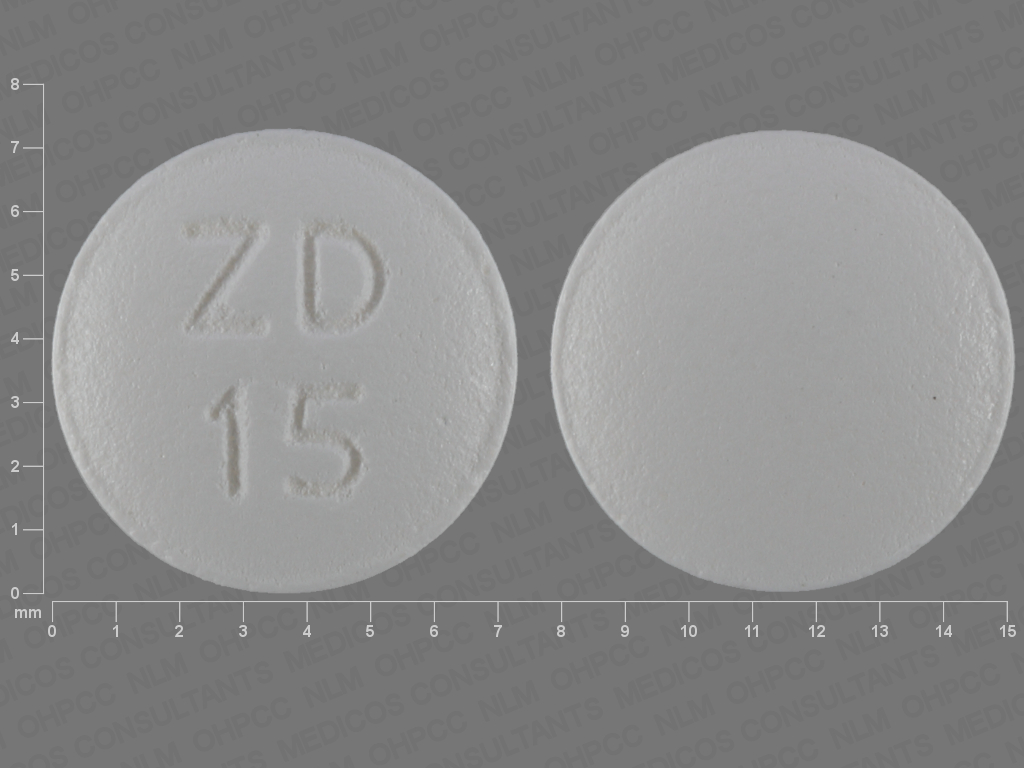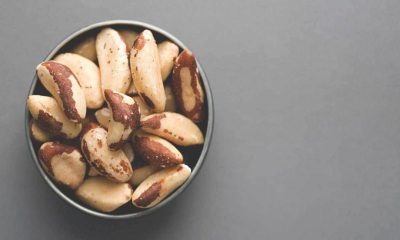Health
Health benefits of walnuts

Discover the Shocking health benefits of walnuts.
The walnut, from the Latin nux, nucis, is the fruit of the walnut tree and is characterized by its rounded shape and its rough and rigid shell. Its fruit inside is the edible part and below we will tell you its properties, health benefits, typologies, therapeutic uses of walnuts.
This food that we all know as one of the nuts, is original from Asia and its cultivation later spread to Europe and America. At present, walnuts have a world production of approximately 1.2 tons and the first producer is China.
Nutritional properties
They are considered a Superfood because they have excellent beneficial properties for health and among many of their nutritional properties are:
Vitamin E: the high content of walnut in vitamin E gives it a high antioxidant power and helps prevent the aging of our body
Potassium: the body needs this mineral to make protein, build muscle, and control the electrical activity of the heart
Polyunsaturated fatty acids: for them walnuts are so valuable for taking care of the heart and are considered the most suitable natural “medicine” to reduce coronary risks. Among these polyunsaturated fatty acids, their contribution in omega-3 stands out
Magnesium: together with potassium, the high magnesium content of walnuts (185 mg / 100 g) means that by consuming a small amount of them a day you already have the amount of magnesium recommended by experts.
Fiber: this nutrient helps reduce blood sugar levels and eliminate all waste from the body, so its consumption is essential in a healthy daily diet.
Vitamins of group B (B1, B2, B3, B6 and B9): favor the proper functioning of the nervous system, mental capacity (memory), even help to combat mild depression and the formation of kidney stones.
Phosphorus: essential for the proper formation of bones and teeth and, like the B vitamins, it favors memory.
Iron: known to all, iron prevents the appearance of anemia, strengthens the body’s immune system and improves moments of tiredness or fatigue.
Zinc: this property of walnuts will maintain good bone formation and stimulate the nervous and immune systems.
Health benefits of Walnuts
Like most nuts, the health benefits of walnuts are numerous and can surprise you with aspects that you didn’t even know about. We tell you which are the main ones and what you can improve your health by eating a small portion (about 30 grams is enough) of walnuts daily.
1. Reduce cholesterol levels
Reducing cholesterol is one of the great benefits of this organic product due to its high content of Omega 3 fatty acids of vegetable origin
2. Cardiovascular health
The fats and minerals in walnuts help prevent cardiovascular disease and have a healthy heart. Specifically, eating about 30 grams of nuts a day, of which at least half must be walnuts, reduces the risk of cardiovascular accidents by 30% according to a study published in The New England Journal of Medicine.
3. Good for the brain
Take care of your brain is the slogan that we could associate with the walnut, its nutritional properties improve the neuronal capacity of the body. Its neuroprotective compounds help improve cognitive and motor function of aging.
4. Energy booster
Nuts are composed of healthy fats or fats of vegetable origin , specifically the walnut contains 21 grams per 100 of product, which will provide you with extra energy in your day to day.
For athletes they can be a great contribution of energy value, it is good to take them after intense physical effort (long-term sports) because of their high content in Omega 3 and their low water content, because they help to recover after exercise.
5. Fight constipation
They also regulate intestinal transit thanks to their high fiber content and combat the dreaded constipation. You will satisfy your appetite and arrive with less anxiety to the main meals of the day
6. Improve sleep
Its content in tryptophan and vitamin B6 favor muscle relaxation, sleep, even fight insomnia. Its contribution of polyunsaturated fatty acids (such as linoleic acid) delay the appearance of sleep disorders.
7. Immune system booster
They boost the immune system , so walnuts help your body protect itself from external agents and feel better and healthier every day.
Did you know that the month of April is the month of the Nut?
Types of walnuts
We have already commented that eating nuts is beneficial for health, and more if they are organically grown.
In addition, we are going to explain what types of nuts are on the market and how each one is different.
California walnuts are one of the best known types, but this does not make them the best quality compared to some types of European walnuts.
It is large in size and regular in shape. Spain is the largest consumer of walnuts in the world and almost 80% of this consumption is of the California variety.
Pecans: this type of nut is from America, it looks like the Californian but more elongated and smooth.
It has a special aroma and a very pleasant taste, which is why it is used in the preparation of many recipes, sauces and desserts.
Castilla walnuts, due to their name, comes from European walnut or Spanish walnut and the ideal season to consume them is the autumn season.
These nuts are more antioxidant than the rest of the types and we recommend that you eat them unroasted, naturally.
Cedar nuts. It is the most exotic type of all, it comes from Russia and they are good for your health because they reduce the amount of LDL cholesterol. They are composed of 70% of the essential amino acids that the body needs.
Therapeutic uses of walnuts
Walnuts have, among all their beneficial characteristics for the body, a series of therapeutic uses that can help to partially counteract the symptoms of some ailments or diseases as we tell you now.
Organic nuts are rich in vegetable fats, fibers and magnesium and have a low glycemic index, therefore, they are beneficial to reduce the risks of type 2 diabetes .
Eating a healthy diet and adding the consumption of organic or organic nuts daily, of course under the supervision of your doctor, can help delay or reduce the onset of diabetes.
Did you know that including 9 nuts a day in your diet can have calming effects on your body?
Yes, the Omega 3 fatty acids contained in the walnut have beneficial effects on blood pressure.
Therefore, its moderate daily consumption calms states of stress , anxiety and nervousness, since they reduce blood pressure.
They are the best natural “treatment” for the heart and if they are organic you are also taking a 100% healthy product.
Include walnuts in your usual consumption as they reduce the appearance of cardiovascular diseases such as: arteriosclerosis, hypertension, myocardial infarction or angina pectoris.
They are indicated for states of lack of energy, forgetfulness or even Alzheimer’s symptoms, since they help to slow down the aging of global cognitive capacity and memory loss because they are a source of fiber and antioxidants.
The consumption of nuts during pregnancy is very beneficial because its nutrients: fiber, calcium, sodium, phosphorus, folic acid,… help reduce the risk of spina bifida in the fetus.
In addition, its calming and relaxing effect help the pregnant woman to improve intestinal transit and lower blood pressure.
Walnuts in the kitchen
We are not going to forget the gastronomic use of walnuts in our diet. Nuts should be part of the fundamental foods for their contribution of nutritional and beneficial properties for the body.
For this reason, there are many and different ways to include the walnut in our daily kitchen, we are going to review them.
Generally its consumption is done raw, alone or accompanied by other products such as yogurt, cheese or other nuts. But nuts are ideal to include in thousands of recipes, sauces or desserts.
There are other culinary uses for walnut, such as walnut oil. It is not an oil to use, but is consumed raw, it would not serve you to fry or cook other foods. But it can be used for dressings or as an ingredient in recipes or more elaborate dishes.
Appetizers are usually the perfect complement to arrive without anxiety at mealtime. And walnuts, due to their high content of healthy nutrients for the body, become the ideal snack to take without neglecting your body or your health.
We hope the article on the Shocking health benefits of walnuts has been of help.
Health
Serious side effects of topamax

Discover the serious side effects of Topamax
One of the medicines used to treat seizures in adults is Topamax, the active substance of which is topiramate.
The taking of this drug should always be done under medical prescription and with the corresponding prescription, as well as it is essential to follow the instructions regarding the dosage indicated by the specialist.
To learn more about Topamax along with its indications, use, and side effects, keep reading this article.
What is Topamax for
Topamax is a topiramate-based drug used to treat seizures in adults and children older than 2 years.
This anticonvulsant is administered in the event of partial seizures with or without secondary generalization or primary generalized tonic-clonic seizures and for the treatment of seizures associated with Lennox-Gastaut Syndrome.
It should be noted that this drug is also used to prevent migraine, although not as a treatment to alleviate them.
Warnings about Topamax
Taking Topamax should always be prescribed by a doctor and it will be necessary to notify your doctor beforehand in case of:
•glaucoma or other eye problems
•kidney disease, kidney stones, or dialysis
•breathing problems
•mood problems, depression, or suicidal thoughts or attempts
•liver disease
•osteoporosis, osteomalacia
•growth disorders
•be taking lithium
•suffer from diarrhea
•being lactose or sucrose intolerant
•It is also not recommended to take Topamax by pregnant or lactating women, as this drug can cause fetal harm or be excreted through breast milk.
Likewise, you should never drink alcohol while you are being treated with Topamax, as the side effects can be very serious.
Side effects of Topamax
Different side effects derived from taking Topamax have been described, so you should go or notify your doctor quickly if you feel any of the symptoms described below:
•Allergic reactions such as difficulty breathing, hives, swelling of the face, tongue, lips, or throat.
•Sudden changes in mood or behavior
•Anxiety and/or panic attacks
•Difficulty to sleep
•Irritation, agitation, and hyperactivity (mentally or physically)
•Depression or thoughts of killing yourself or hurting yourself
•Numbness or tingling in the extremities
•Headache, tiredness, dizziness, or drowsiness
•Changes in taste
•Nausea, diarrhea, indigestion, stomach pain, loss of appetite or weight
•Quick back and forth movements in your eyes.
Likewise, it should be noted that these are not only the adverse effects that Topamax can cause, so you should consult your doctor in case of any other type of alteration or symptom.
This article is merely informative, we do not have the power to prescribe any medical treatment or make any type of diagnosis.
We invite you to go to a doctor in the case of presenting any type of condition or discomfort.
Health
18 benefits of peanuts during pregnancy

Discover the 18 benefits of peanuts during pregnancy.
Peanuts during pregnancy can be very beneficial for future mothers and their fetuses. Peanuts are not only delicious, but they are also packed with vitamins, minerals, and other natural compounds that are great for pregnancy, which you can’t miss.
You must remember that pregnancy is a wonderful gift that only women can experience.
Being pregnant is like a noble job ordained directly by God for women, something that men could not do on their own. During pregnancy, the fetus magically grows inside the woman’s womb until the baby is born into the world.
To ensure the optimal development of the fetus before it is born, mothers must consume highly nutritious food because it is the only way the fetus can obtain food.
When it comes to the list of foods that mothers should consume during pregnancy, the list will be endless, but you could consider the benefits of peanuts during pregnancy, as peanuts
Peanut Nutritional Values
Peanuts are considered a healthy snack. However, this does not mean that you can consume without knowing the nutrients that peanuts contain.
By knowing the nutrients contained in peanuts, you can measure the number of peanuts needed during pregnancy, since surely the needs of each one are different from those of others.
Serving Size: 100 grams
Energy 567 kcal – 29%.
Carbohydrates 16.13 g – 12%.
Protein 25.8g – 46%.
Total fat 49.24 g – 165%.
Dietary fiber 8.5g – 22%.
Folate 240 µg – 60%.
Niacin 12mg – 75%.
Pantothenic acid 1,767 mg – 35%.
Pyridoxine 0.348 mg – 27%.
Riboflavin 0.135 mg – 10%.
Thiamine 0.64 mg – 53%.
Vitamin E 8.33mg – 55%.
Calcium 92mg – 9%.
Copper 1,144 mg – 127%.
Iron 4.58mg – 57%.
Magnesium 168mg – 42%.
Manganese 1,934 mg – 84%.
Phosphorus 76 mg – 54%.
Selenium 7.2 µg – 13%.
Zinc 3.27mg – 30%.
Sodium 18mg
Potassium 705mg – 15%.
From the table above, surely you have a general idea of the number of peanuts you could consume daily.
The key is to consume it in moderation, but sometimes it is necessary to ensure that the daily intake of a certain nutrient can be met to ensure optimal development of the fetus.
18 Benefits of Peanut During Pregnancy
Below are the benefits of peanuts during pregnancy that will give you reasons why you should add this healthy and delicious snack to your daily diet.
1.- Excellent source of folate
During pregnancy it is highly recommended to consume foods rich in folate and peanuts are one of them.
For every 100 grams of peanuts, approximately 60% of the daily intake of folate could be covered. It is common knowledge that folate is essential for fetal development, especially early in the trimester.
2.- Natural source of vegetable protein
Protein is essential for a mother during pregnancy and 100 grams of peanuts contains enough protein to meet the daily intake.
3.- Prevents birth defects
The birth defect can occur when the development of the fetus is disturbed or when there are insufficient nutrients to support development.
Peanuts are packed with vitamins and minerals that are great for pregnancy like folate to support optimal growth and minerals like iron and calcium to make sure there is enough red blood cell stock.
4.- Promotes optimal brain development
It is great food for the brain. During pregnancy, the fetus receives nourishment from the mother, and the folate consumed by the mother is not only beneficial to the mother, but also the developing brain of the fetus.
If you want to have a healthy and smart baby, eat peanuts during pregnancy.
5.- Source of calories for the mother
Each mother’s calorie needs may be different, but calories are essential for increased energy.
During pregnancy, a mother may suffer from fatigue and get tired easily. To help boost energy, peanuts can help restore it.
6.- Contains healthy fats
Not all fats are bad and peanuts do contain some healthy fats that are great for the mother during pregnancy.
Healthy fats are great for promoting a healthy heart, as mothers are at high risk for high blood pressure during pregnancy.
7.- Reduces the risk of allergic diseases
Recent studies have indicated that mothers who consume peanuts during pregnancy may reduce the risk of allergic diseases.
Not only allergic foods such as peanuts but also other types of allergies such as asthma.
8.- Helps control blood pressure
High blood pressure during pregnancy could be fatal for both the mother and the fetus. That is why it is very important to always keep your blood pressure under control.
To help control blood pressure, adding peanuts to your daily diet is highly recommended because basically, peanuts are great for your heart.
9.- Prevents gestational diabetes
On the table, it was seen that peanuts are quite rich in manganese. This mineral has an important role in regulating blood sugar levels during pregnancy to prevent gestational diabetes. Additionally, manganese also promotes optimal calcium absorption.
10.- Fight depression
During pregnancy, the mother is at risk of stress and depression. Well, some studies have shown that mothers who eat peanuts are much happier than those who don’t. So whenever she feels stressed, she snacks on peanuts.
11.- Decreases the risk of weight gain
Obesity during pregnancy is never good for both mother and baby. That’s why managing your weight is so important peanuts, while they do contain fat and calories, fats are healthy fats and packed with other nutrients that may help you control calories.
12.- Promotes skin health during pregnancy
One of the problems that every mother has to deal with during pregnancy is the skin problem.
Although they are prohibited from using cosmetics due to their chemical content, they could manage their skin problem just by consuming peanuts. Vitamin E and antioxidants will help prevent all skin conditions.
13.- Source of vitamin E
Vitamin E is the reason why a pregnant mother should look good. Vitamin E promotes skin health and makes sure that there is no such skin condition that the mother has to face.
Therefore, they could focus on her pregnancy instead of giving birth to a healthy baby.
14.- Great source of omega 3 fatty acids
If you think that fish is not your friend during pregnancy but you know that you need a great source of omega 3 fatty acids, you could replace fish with peanuts because they contain quite high healthy fats.
15.- Excellent source of vitamin B complex
In the table above you can see the high content of vitamin B found in peanuts per 100 grams. Most of them could satisfy almost half of the daily intake of vitamin B.
16.- Contains powerful antioxidants
Antioxidants are not only a solution against cancer, but during pregnancy, antioxidants could help the mother to maintain her immune system so that she doesn’t get sick easily.
17.- Rich in minerals
Looking for a quick fix to meet your daily mineral intake during pregnancy, peanuts are the answer.
You could see the nutritional table above about the value of minerals found in peanuts. 100 grams of peanuts are capable of satisfying half of the daily intake of minerals that your body needs.
18.- Super healthy sandwich
Well, during pregnancy you need to make sure that you consume enough food to ensure the optimal development of the fetus. Add peanuts to your daily diet because they are the super healthy snack that everyone loves.
Peanut Precautions
Peanuts may be packed with vitamins, minerals, and other natural compounds that are beneficial during pregnancy.
The list of benefits of peanuts during pregnancy mentioned above are scientifically proven facts. However, there are still some precautions about peanuts that you should be aware of as well.
Allergic reaction is one of the common things that can happen when peanuts are consumed. If a mother has ever been diagnosed as allergic to peanuts, she should not eat them.
Some studies also claim, that too many peanuts consumed during pregnancy could increase the risk of allergic reaction to the baby when they were born. Therefore, it is better to consume it in moderate amounts.
Peanut butter can be delicious, but it is recommended to consume it in its real form, as peanut butter has been through some processing and care must be taken with the amount of refined sugar in peanut butter.
Be careful with salty peanut snacks too because they can be delicious to eat during pregnancy, but salt contains sodium that could increase your blood pressure level. High blood pressure during pregnancy can be fatal.
Peanuts are healthy snacks that mothers can add to their daily diet, especially in the early stages of pregnancy when morning sickness is at its worst.
Just by eating peanuts as a snack, you could at least ensure that the baby inside your womb is still getting the nutrients that she needs to develop.
However, you need to keep in mind the precautions mentioned above if you want to reap the full benefits of peanuts during pregnancy and not the other way around.
Health
10 shocking health benefits of Arugula

Table of Contents
-

 Food8 months ago
Food8 months ago10 + Benefits of carrot juice and side effects
-

 Food8 months ago
Food8 months ago8 shocking benefits of leek juice and side effects
-

 Health8 months ago
Health8 months agoBenefits of guava leaves Sensually
-

 Health8 months ago
Health8 months ago5 Shocking health benefits of kinkeliba and side effects
-

 Health8 months ago
Health8 months ago7 health benefits of cashew leaves and side effects
-

 Health8 months ago
Health8 months ago13 shocking health benefits of Thai eggplant
-

 Health8 months ago
Health8 months ago10 shocking health benefits of Canary seed milk
-

 Food6 months ago
Food6 months ago19 Benefits of tobacco plant and side effects












